Regular Support: Rebuilding Futures Across the World
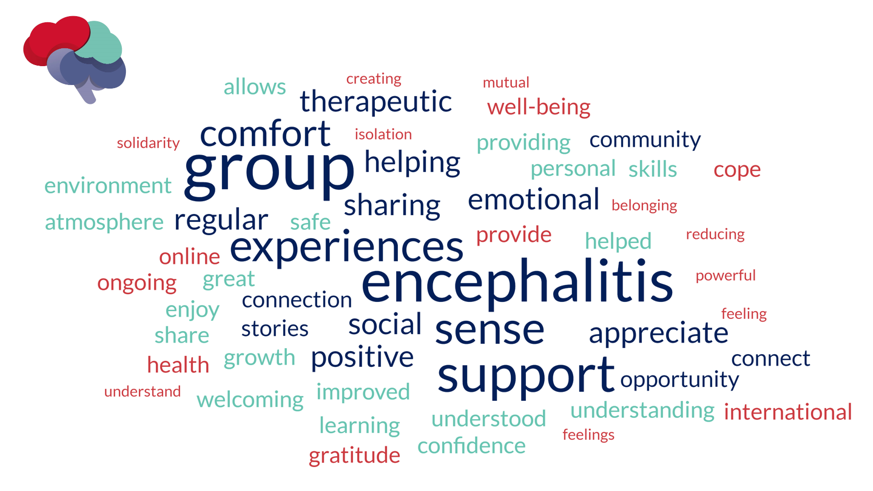
Our online Peer Support Groups are inclusive opportunities to share experiences for those who have been affected directly or indirectly by encephalitis, wherever they are in the world.
We provide a range of free hour-long sessions which take place monthly. Participants can choose which session suits them best and they can attend as many sessions as they like – there is no commitment or expectation. We aim to keep these Peer Support Groups:
- Accessible
- Friendly
- Supportive
- Safe
In this blog post, attendees from each of the current Peer Support Groups share the positive impact they’ve experienced.
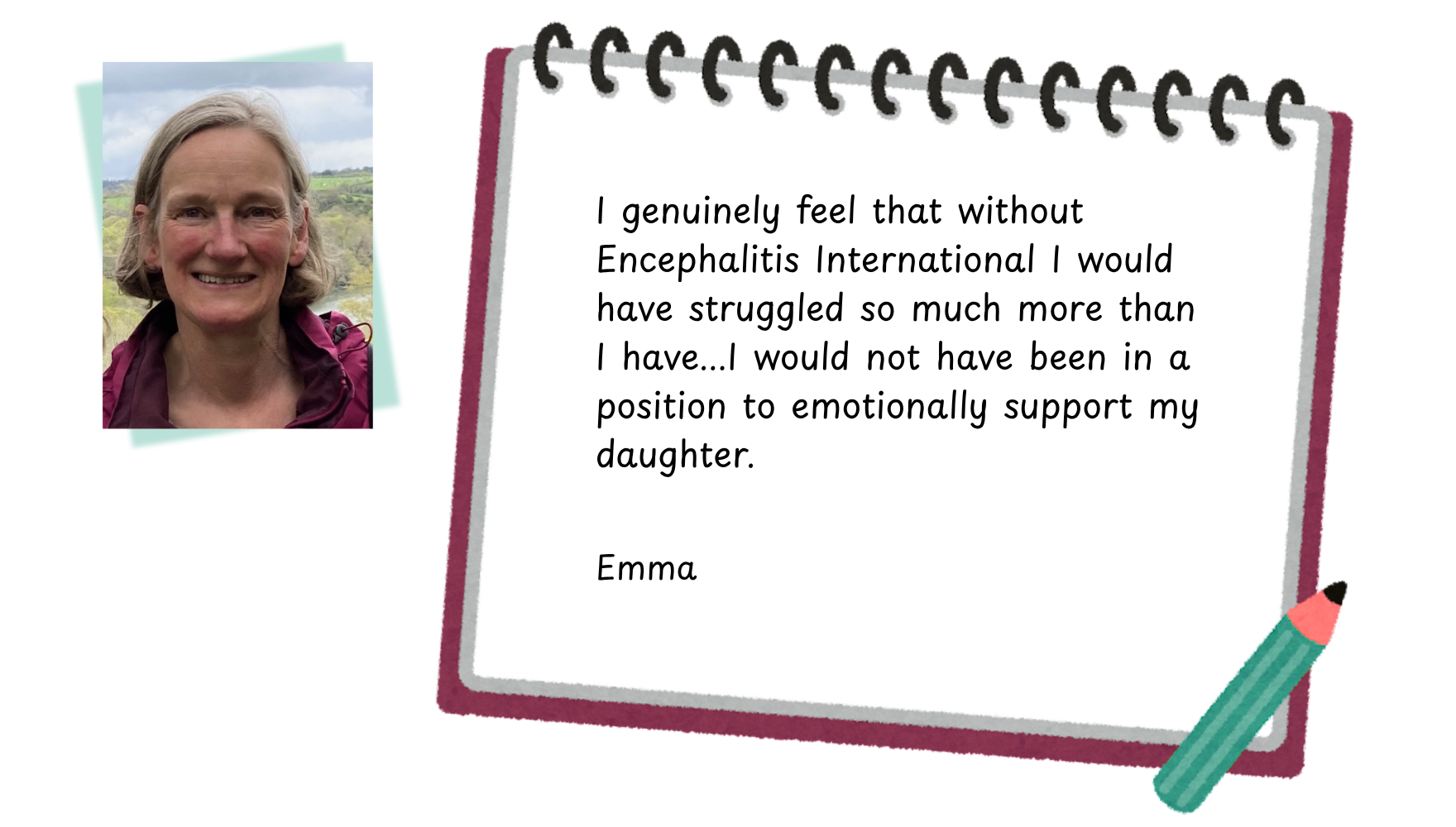
Emma connects with others at our Parents & Guardians of Children Affected group:
“I have attended the online parent support group for about 9 months. I have found the group to be incredibly supportive – having a child with encephalitis is incredibly isolating, but the group has helped me to realise that I’m not alone, that others are facing similar difficulties, that others completely understand what we as a family are experiencing. ”
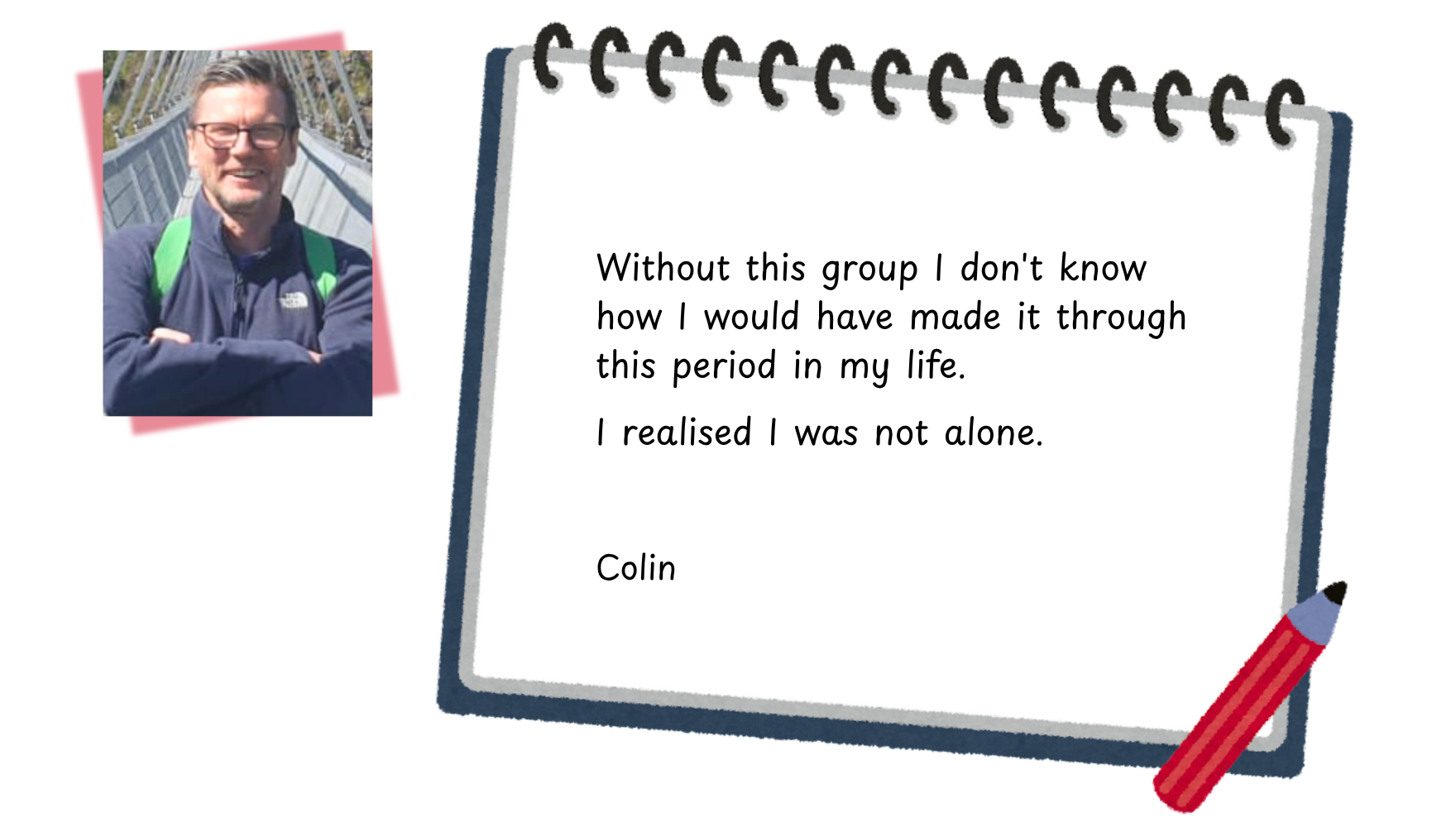
Colin appreciates the friendships that have been formed in the Scotland group he attends:
“I love my online meetings where we are all equal and can openly discuss anything and it is reassuring how everyone helps each other with any difficulties they are encountering. Everyone in my group I am proud to call my friends, and we share lots of stories and have a great time when we all meet.”
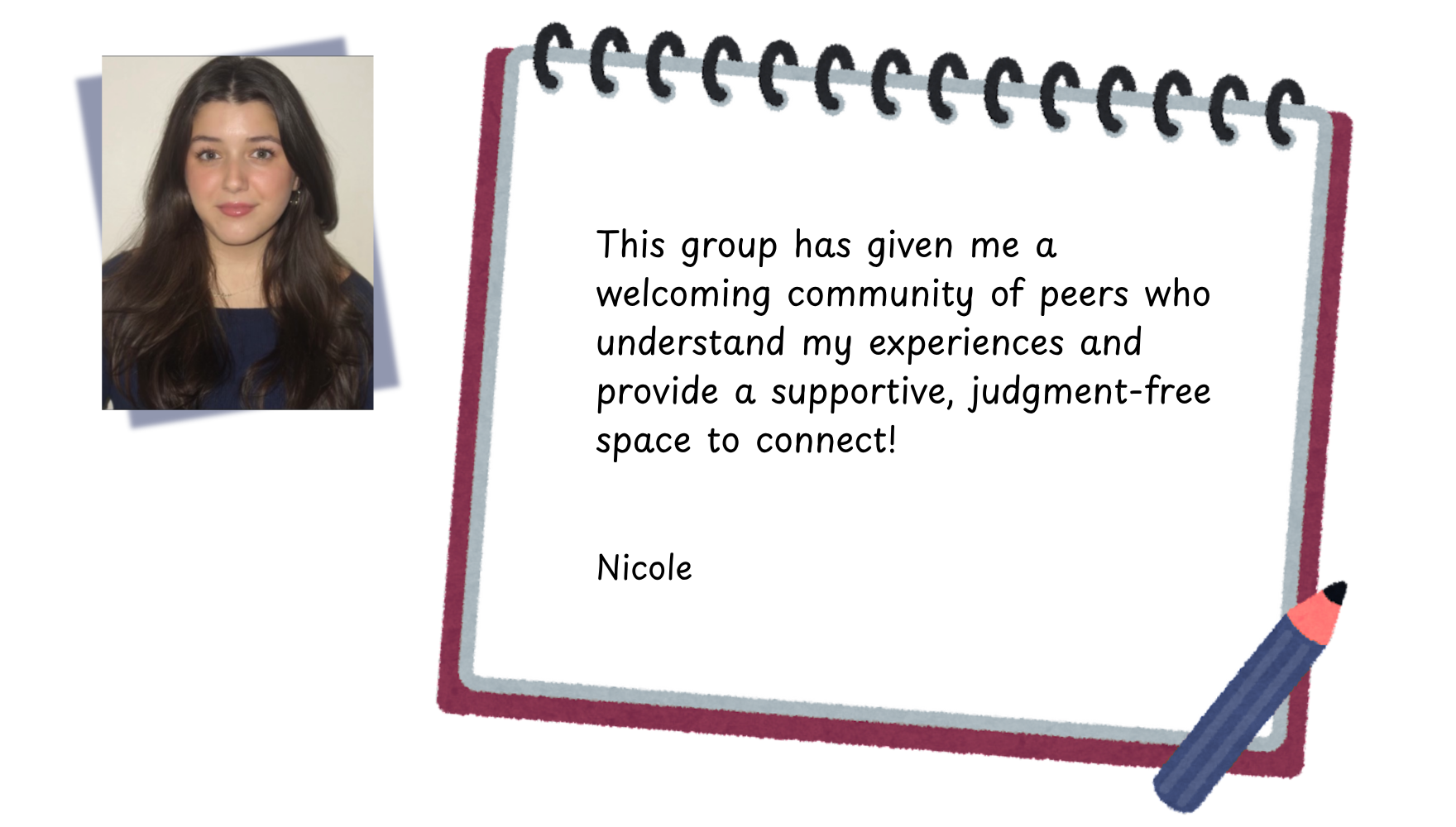
Nicole attends and volunteers to help host our Young People (18-25 years) group:
“I co-host the group alongside Diane and have been doing so for over six months now. I always look forward to our monthly meetings as they provide an opportunity for meaningful discussion with people I’ve connected with through this challenging illness. While some meetings involve venting frustrations and how to navigate challenges of life post encephalitis, most are lighthearted, filled with laughter and feel like catching up with friends.“
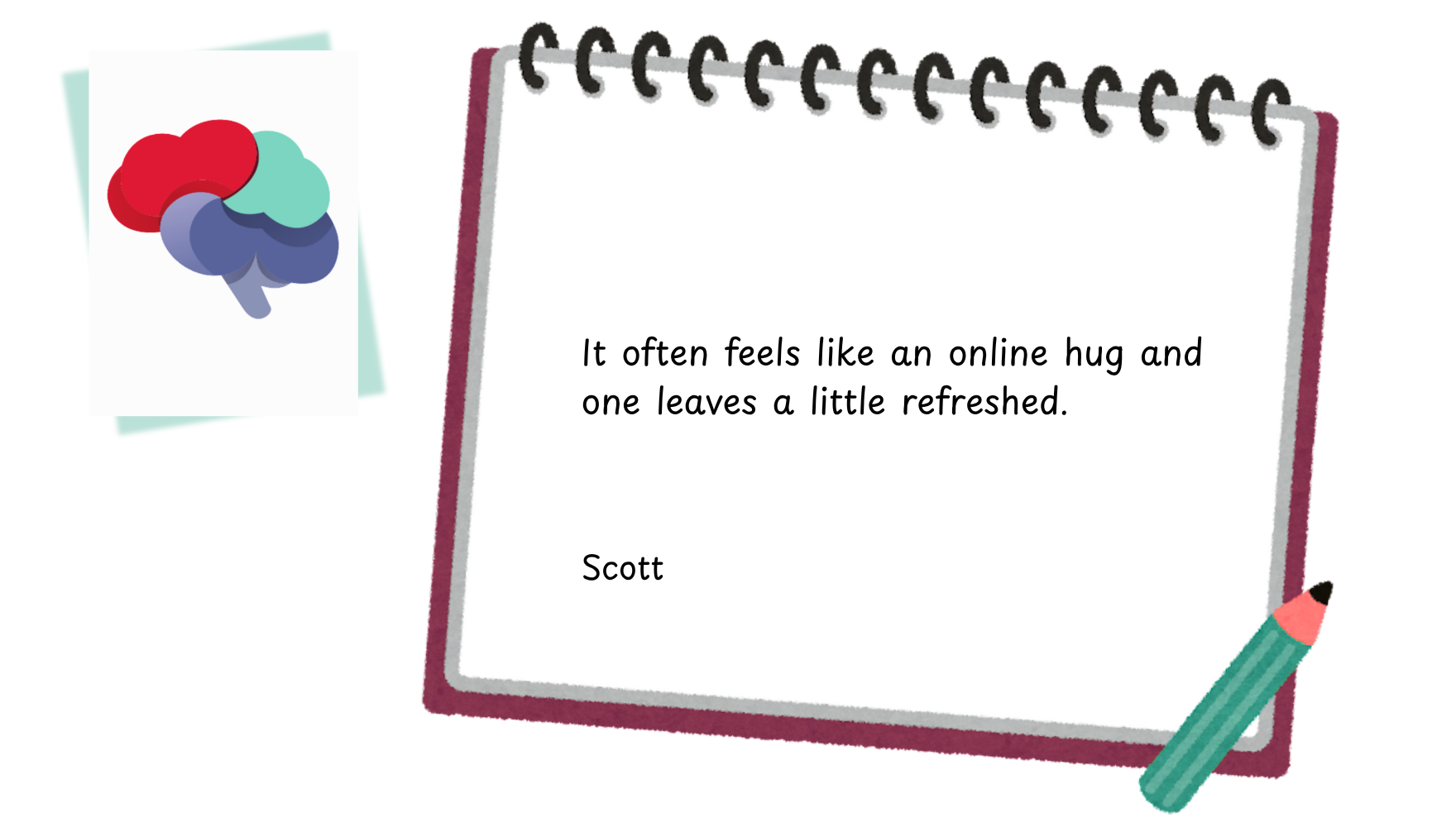
Scott values the support offered within the Canada group:
“Having endured HSV encephalitis five years ago, I realized soon after that no support groups seemed to exist in Canada. I was so pleased to learn that Encephalitis International had started one! The lasting effects on one’s life experience, perspective, relationships, and outlook go largely unnoticed by others, but never miss being observed by oneself, the encephalitis survivor. Talking – sharing stories, experiences and strategies – with survivors and parents of survivors is beneficial therapy. It adds purpose to our lives.“
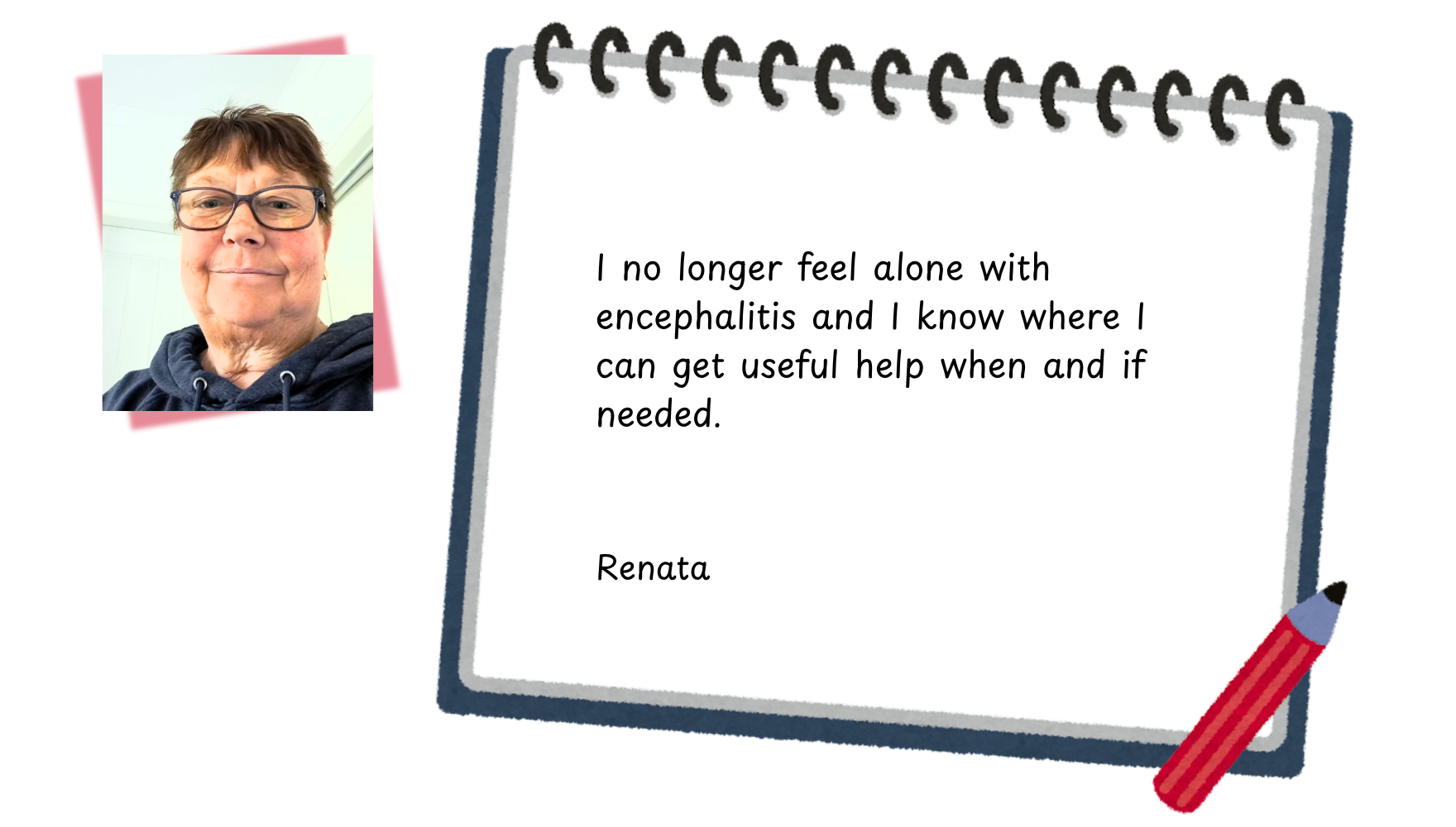
Renata can talk openly with peers at the UK’s North-East, Yorkshire & Humber group:
“I find the group very useful where I can talk and discuss my thoughts and feelings without fear of people not understanding and it takes the pressure off my family listening to my fears and thoughts. I think personally we have a nice group of people and I would like to think we all have made good connections and good friends and I hope all the group feel like me that we can discuss anything.“
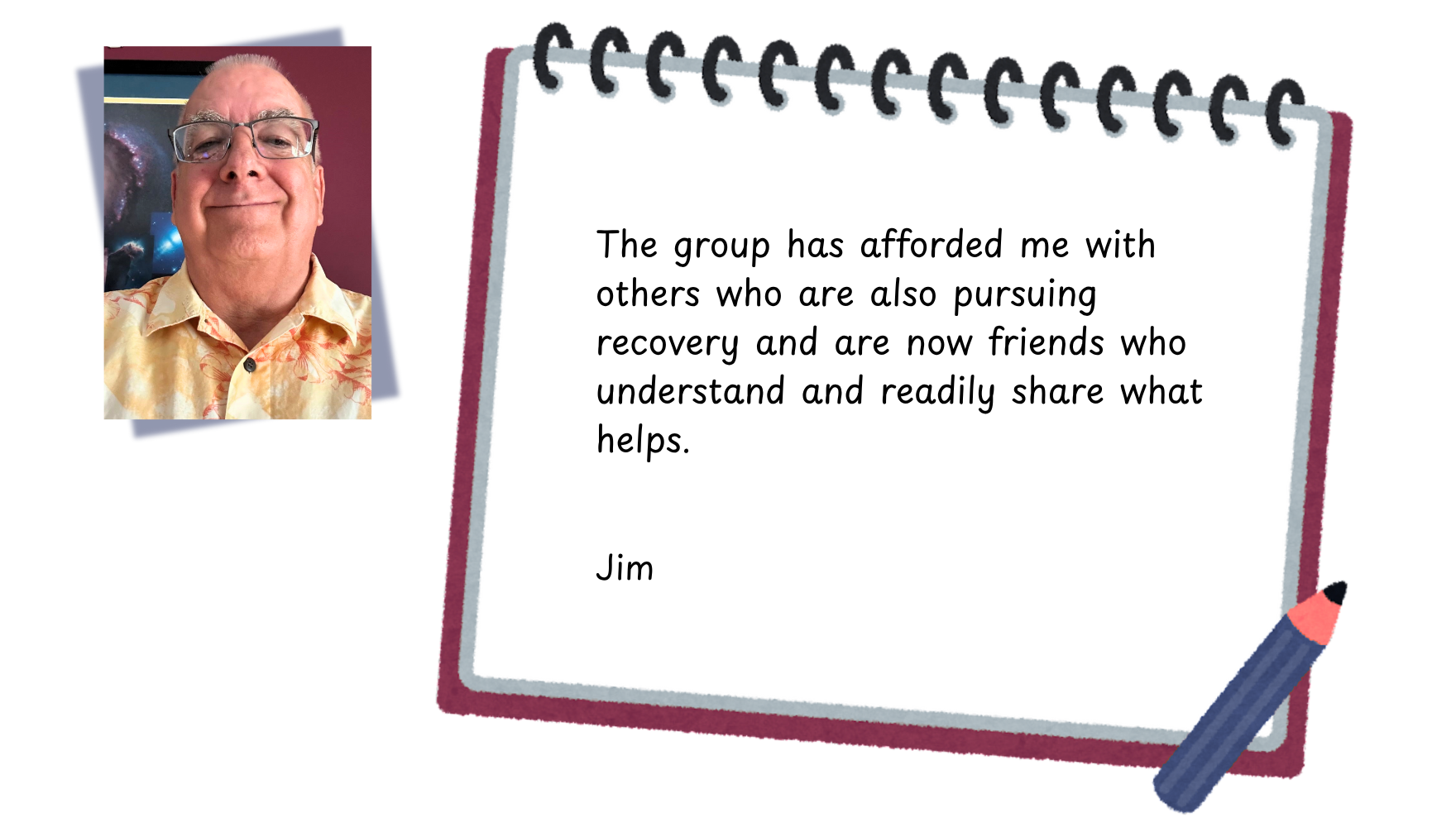
Jim attends the USA group and finds it beneficial for navigating life after encephalitis:
“For the past 23 months since my diagnosis, the encephalitis group has provided strong support, insight and awareness to the disease for the victims and equally, the families and friends struggling with me. The group provides monthly calls for recovering patients to share strategies that can accelerate our improvements and new ideas to consider for recovery.”
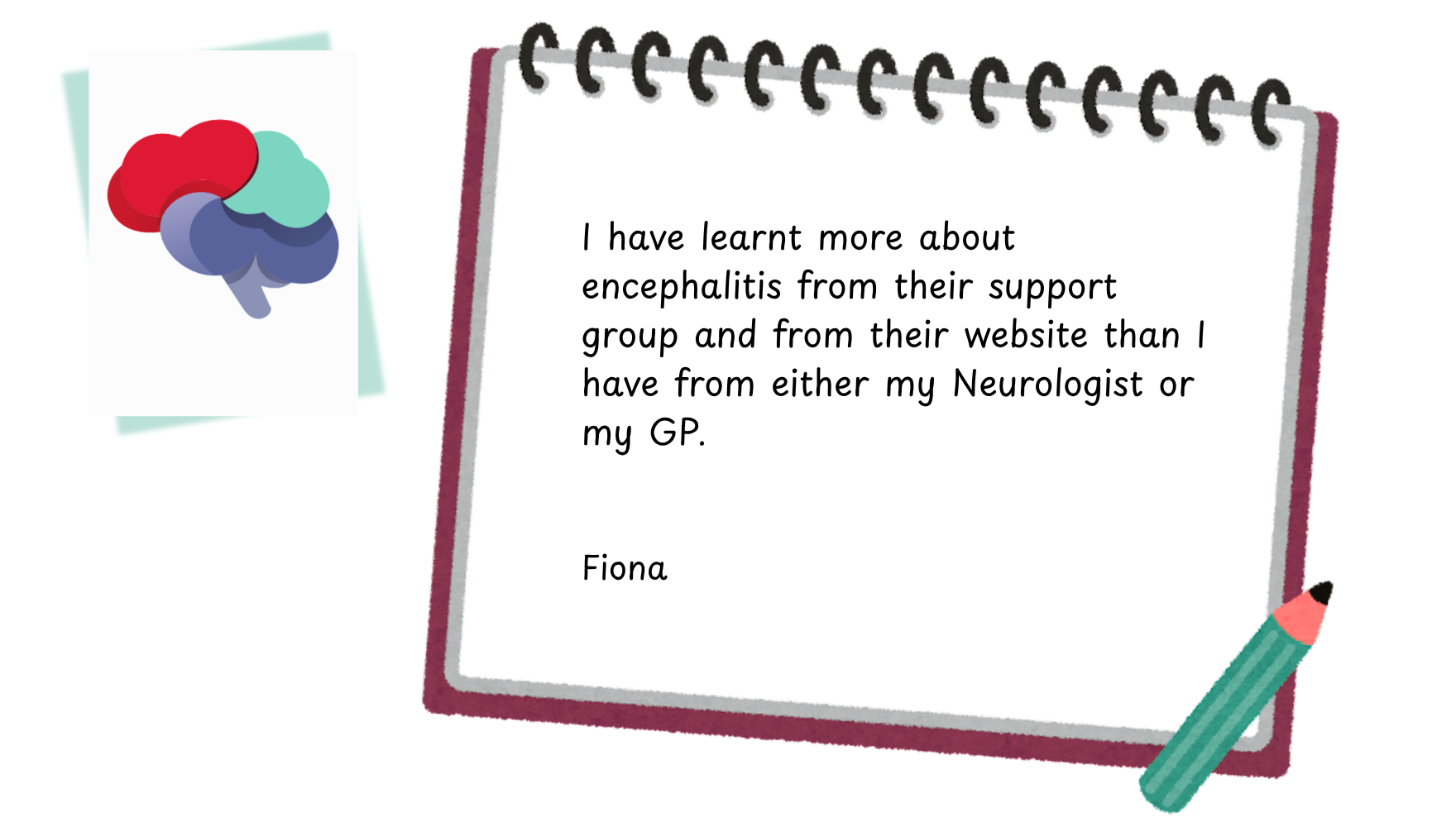
Fiona has learnt a lot from the People Directly Affected (Worldwide) group:
“It is lovely to spend time with people who are also finding their way through life with various types of encephalitis. Chatting with fellow sufferers-survivors about the common and not so common challenges of living with encephalitis helps me a lot… I know I can chat freely and do not feel stupid asking about anything to do with living with encephalitis.”
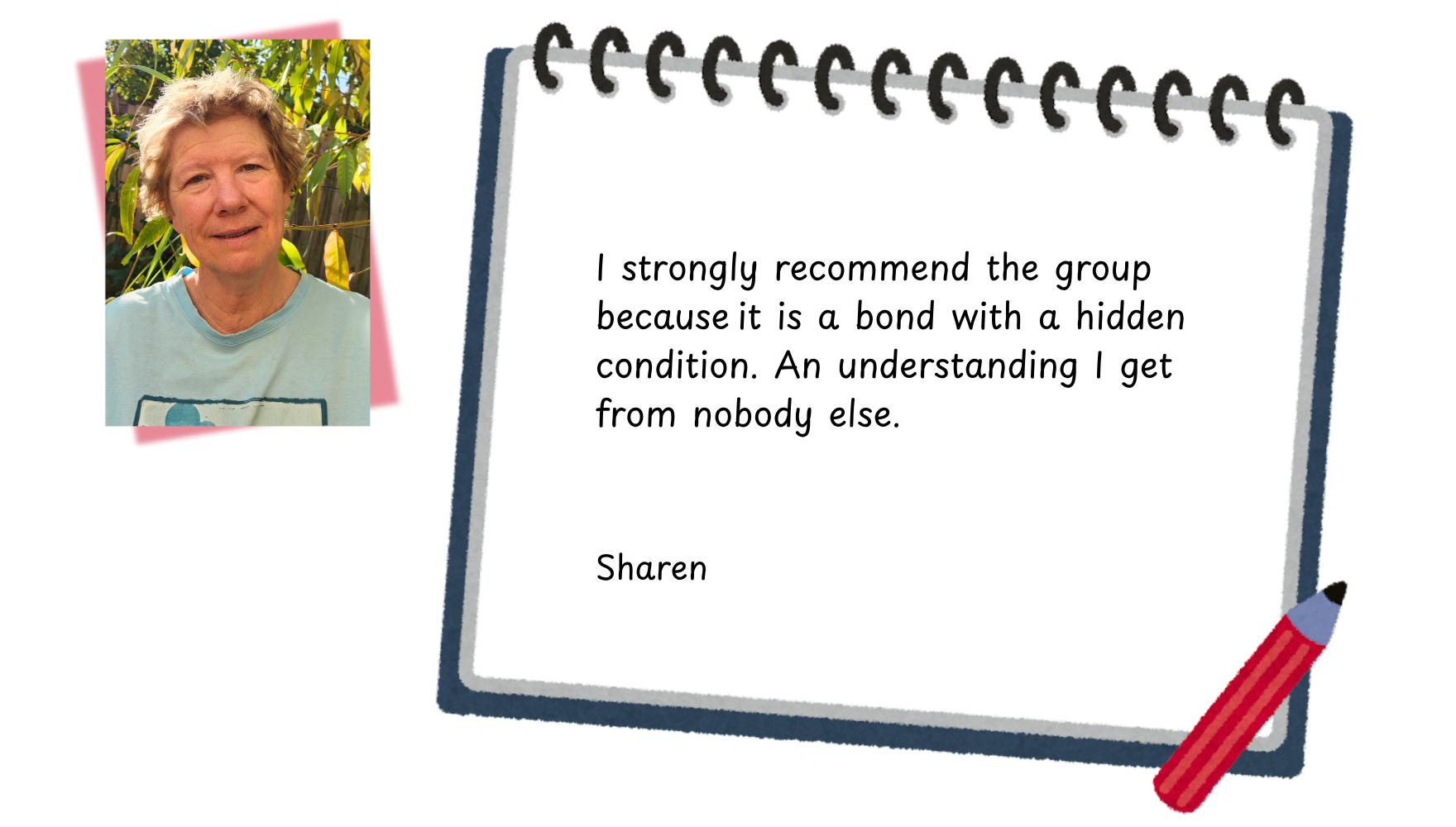
Sharen joins the Australia & New Zealand group and highlights the importance of empathy:
“I feel understood. I can assist others/try to. To be brutally honest it makes me realise how lucky I am given the struggles some had and continue to have. I come back each month because of the bonds formed and the ‘friends’ I have met…share ideas on what helps.”
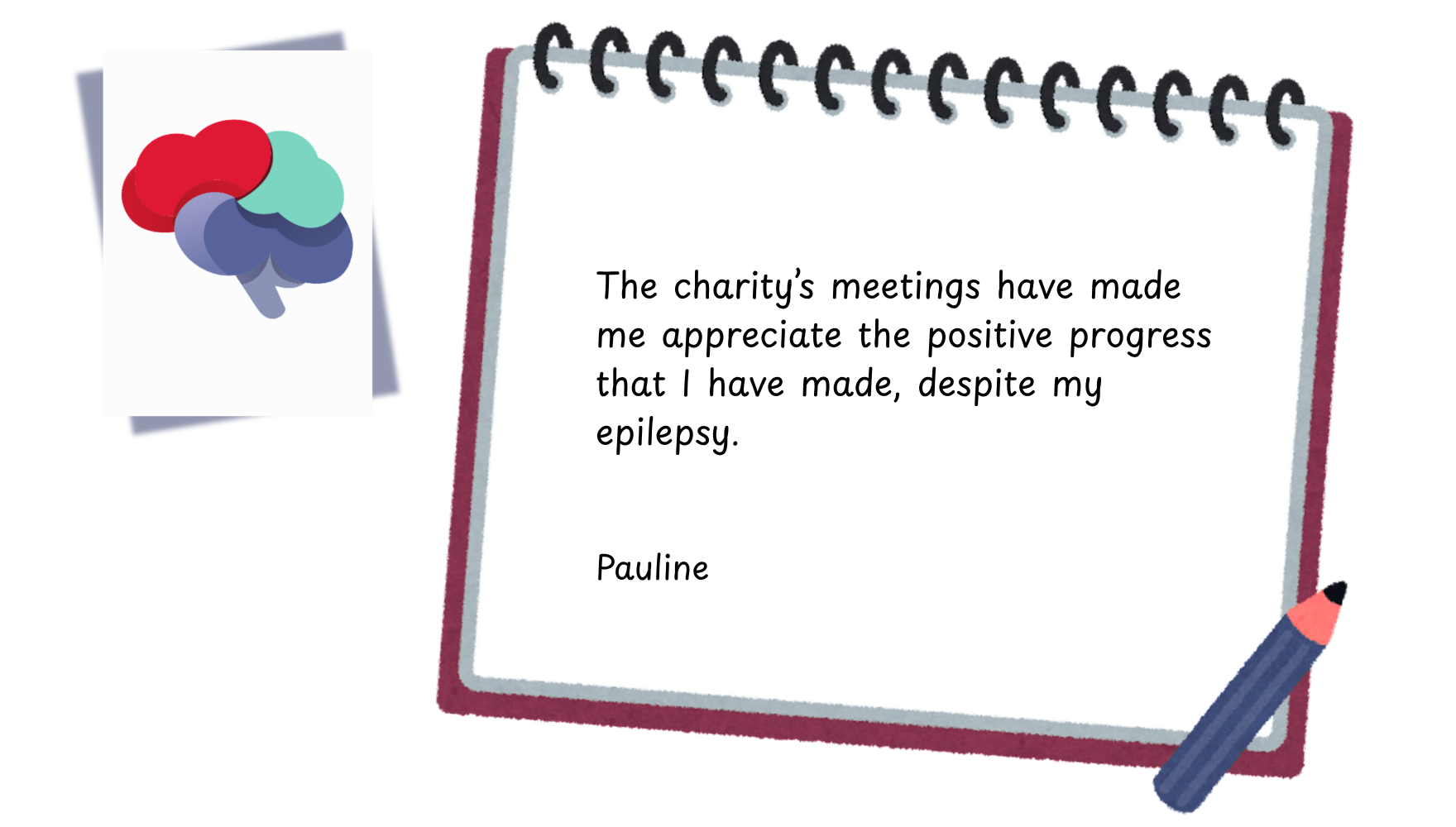
Pauline benefits from the North West group in the UK, which she attends as a host:
“Working as a volunteer with the charity, I have met survivors of encephalitis at North West online meetings and in person, and that has prevented me from feeling that I am alone in the encephalitis roller coaster recovery journey. I have also made some lovely encephalitis survivor buddies.”
Being part of this community has enabled these attendees, and many more, to share their worries or concerns; to ask questions; to offer advice and top tips for coping with the challenges that are faced when living life after encephalitis.
Could you help provide these Peer Support Groups and other vital elements of our Support Service by becoming a regular giver and making a monthly donation?
Donate £6.25 / €7.42 / $8.34 each month – covering the cost of a Peer Support session over the next year
Donate £75 / €89 / $100 each month – covering the cost of one of our eleven monthly Peer Support sessions
MAKE A REGULAR DONATION TO PROVIDE SUPPORT THAT REBUILDS FUTURES
